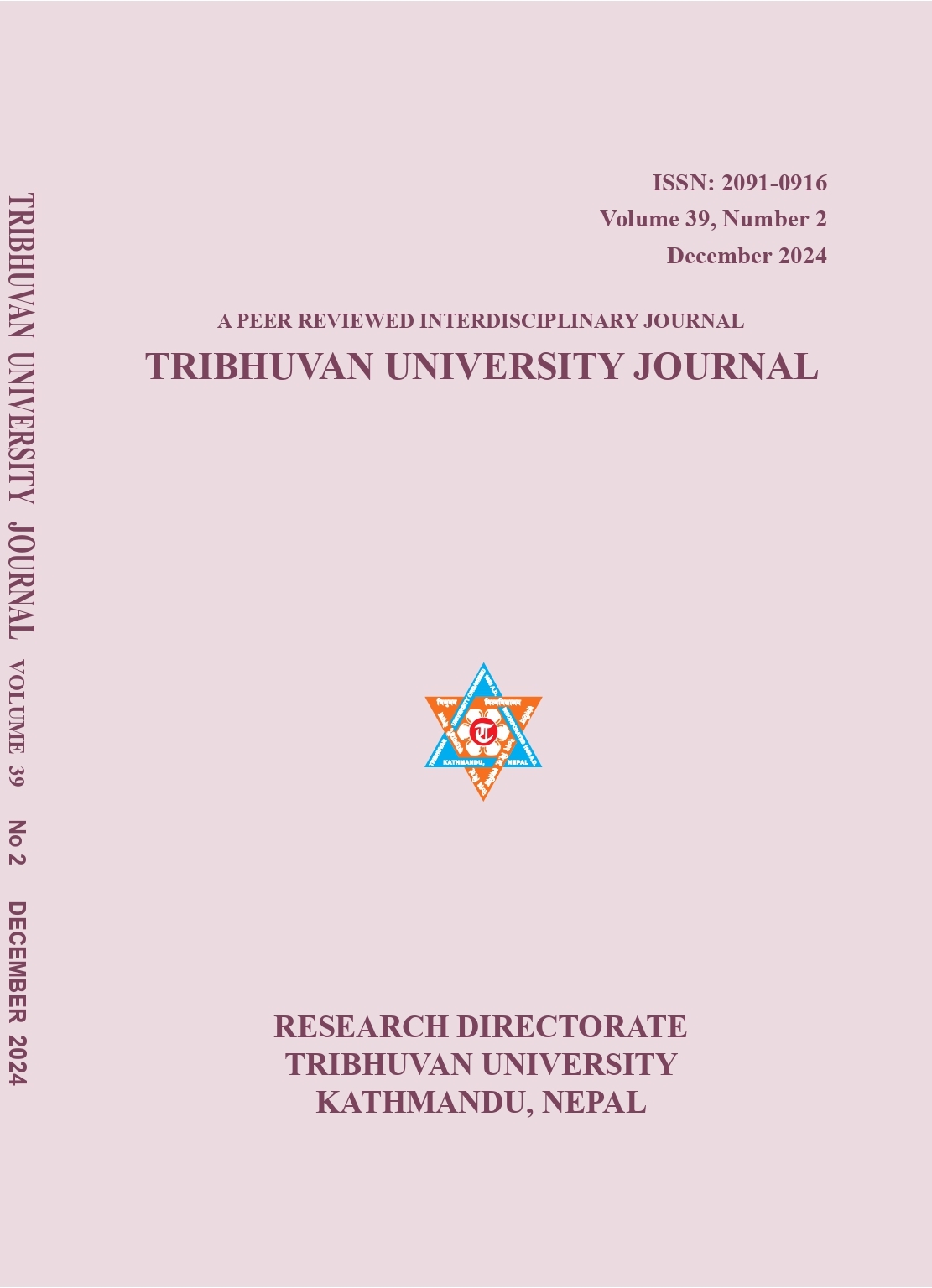Enhancing Efficiency Through Re Engineering of the Examination System at Tribhuvan University
DOI:
https://doi.org/10.3126/tuj.v39i2.73007Keywords:
Tribhuvan University, examination system, re-engineering, decentralization, information technologyAbstract
This paper attempts to analyze the examinations administration system of the Office of the Controller of Examinations (OCoE) at Tribhuvan University. This body of the university is the face and is responsible for the evaluation of students. It also prepares and announces in advance the calendar of examinations, arranges for the printing of question papers, scheduling exams, declaration of results, distribution of transcripts and certificates, and conducts convocation to award academic success (Patil et al, 2021). The main objectives of this study are to explore the framework of re-engineering for examination management information system and identifying major challenges in the existing examination system. Purposeful sampling method was used to gather information about the university examination and results processing system. Qualitative response was collected by visiting 20 concerned authorities related to information technology (IT). Key Informant Interviews (KII) and group discussion were conducted with 20 from among the members of higher steering committees of IT, OCoE staffs and software developers to collect comparative opinions regarding experiences and practices of existing and newly initiated examination software. Different examination software as DBS and TUEMIS are functioning separately. So, there is a need of integrated system for effective, efficient, and reliable IT solution in OCoE. The study has explored four major problems at OCoE, TU, including IT, administrative, decentralization, and human resource management, and also has presented their solutions. As a solution to IT issues, supply development, commissioning, and re-engineering of examination management information system (EMIS) have recently been initiated. A total of 22 modules are designed along with other 10 supporting modules that will remain milestone to establish OCoE as a paperless and complete automated examination administration system. Decentralization of OCoE regional offices strengthens, empowers, and activates decentralized examination processing functions. This will foster participatory leadership, and inter-disciplinary collaborations, and promotes ownership as well (Fekadu et al., 2021). The OCoE is less administrative and more technical. So, its examination and results processing functions should be led by IT experts and professionals carried out by IT technicians.
Downloads
Downloads
Published
How to Cite
Issue
Section
License

This work is licensed under a Creative Commons Attribution-NonCommercial 4.0 International License.
This license enables reusers to distribute, remix, adapt, and build upon the material in any medium or format for noncommercial purposes only, and only so long as attribution is given to the creator.
© Center for Research, Tribhuvan University

